Introduction:
When it comes to nuts, peanuts are the star of the show due to their numerous health advantages as well as their delectable flavor and enticing crunch. These lowly legumes, which are sometimes confused for nuts, are a nutrient-dense powerhouse that improves general health. Let us explore the amazing world of benefits of peanuts and learn about all the ways they can be beneficial to our health.
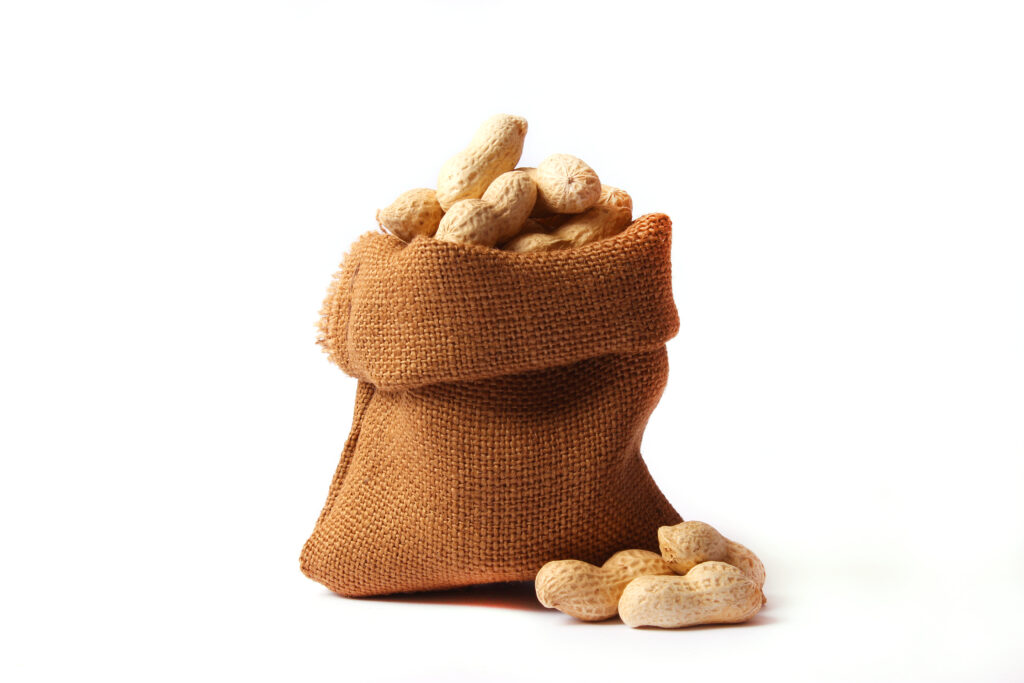
- Rich in nutrients:
Packed with vital vitamins and minerals, peanuts represent a nutritious treasure trove. They are a great source of protein because they contain a lot of amino acids, which help build and repair muscle. Furthermore, the heart-healthy monounsaturated and polyunsaturated fats found in peanuts are essential for preserving normal cholesterol levels. The following are peanuts’ advantages:
- Heart Health:
Regular peanut consumption has been associated with a lower risk of cardiovascular disease. Peanuts’ monounsaturated fats promote heart health by lowering bad cholesterol (LDL) and raising good cholesterol (HDL). Antioxidants like resveratrol help shield the heart from additional damage by reducing inflammation and oxidative stress.
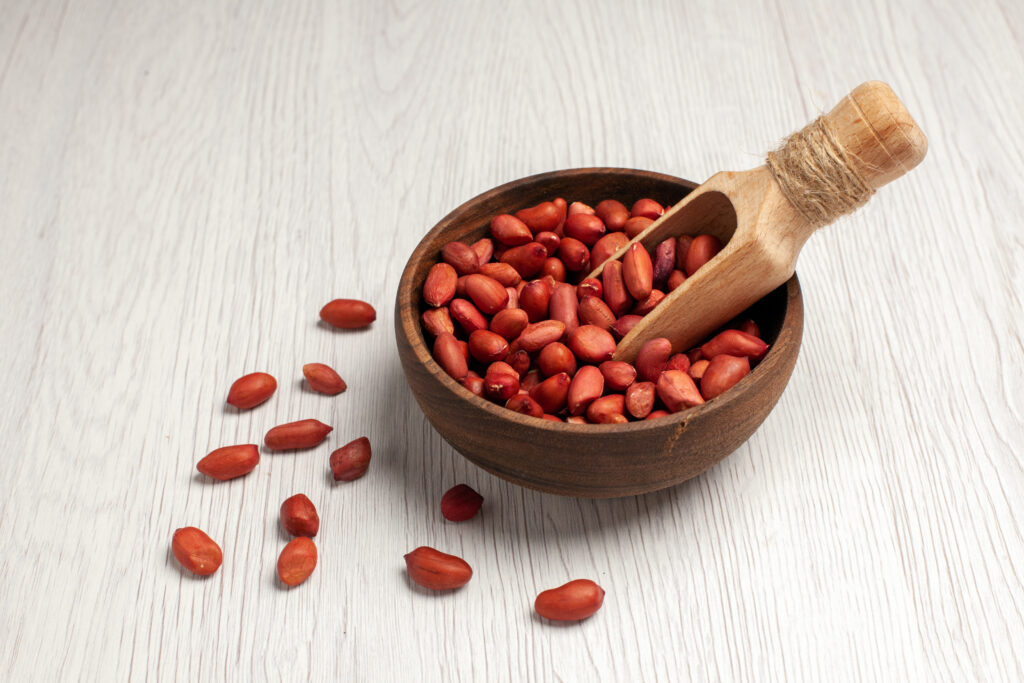
- Weight Management:
Despite the widespread belief that nuts cause weight gain, peanuts can be an effective ally in the fight against the bulge. They have a pleasant crunch that helps stifle cravings and keeps you feeling full for longer because they are packed of fiber, protein, and healthy fats. Because they increase satiety and lower total calorie consumption, peanuts can help with weight management when included in a balanced diet.
- Diabetes Management:
Due to their low glycemic index, peanuts cause blood sugar levels to rise more gradually. For those who already have diabetes or are at risk of getting it, this is a wise decision. Peanuts are a great snack choice for people with diabetes because of their fiber, protein, and healthy fats, which all work together to control blood sugar.
- Brain Boost:
Nutrients in peanuts, especially niacin and folate, are beneficial to the brain. Niacin has been linked to a lower risk of age-related cognitive decline, while folate is necessary for the formation of neurotransmitters and brain networks. Consuming peanuts may help reduce your risk of developing neurodegenerative disorders and enhance cognitive performance.
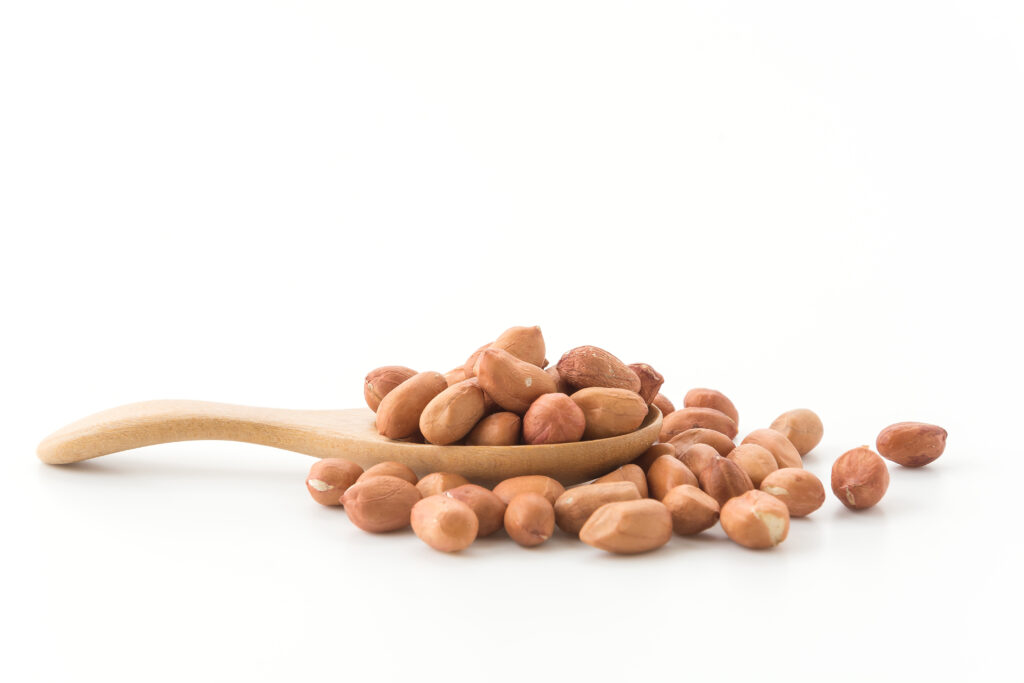
- Energy Booster:
As a portable and high-energy snack, peanuts are a great option when you need a rapid energy boost. Peanuts are a great option for a mid-afternoon or pre-workout snack because they include a balanced blend of carbohydrates, protein, and healthy fats that give a steady release of energy. A natural, nutrient-rich energy boost will help you wave goodbye to energy slumps.
- Antioxidant Powerhouse:
Antioxidants such as vitamin E, beta-sitosterol, and resveratrol abound in peanuts. By scavenging free radicals from the body, these substances lessen inflammation and oxidative stress. Peanuts improve general health and may help avoid chronic diseases, such as some malignancies, by preventing cellular damage.
- Bone Health:
Peanuts contain calcium, magnesium, and phosphorus, all of which are essential for strong, healthy bones. The development, density, and general health of the skeleton are all significantly influenced by these minerals. Consuming peanuts might be a delicious way to strengthen your bones and lower your chance of developing diseases like osteoporosis.
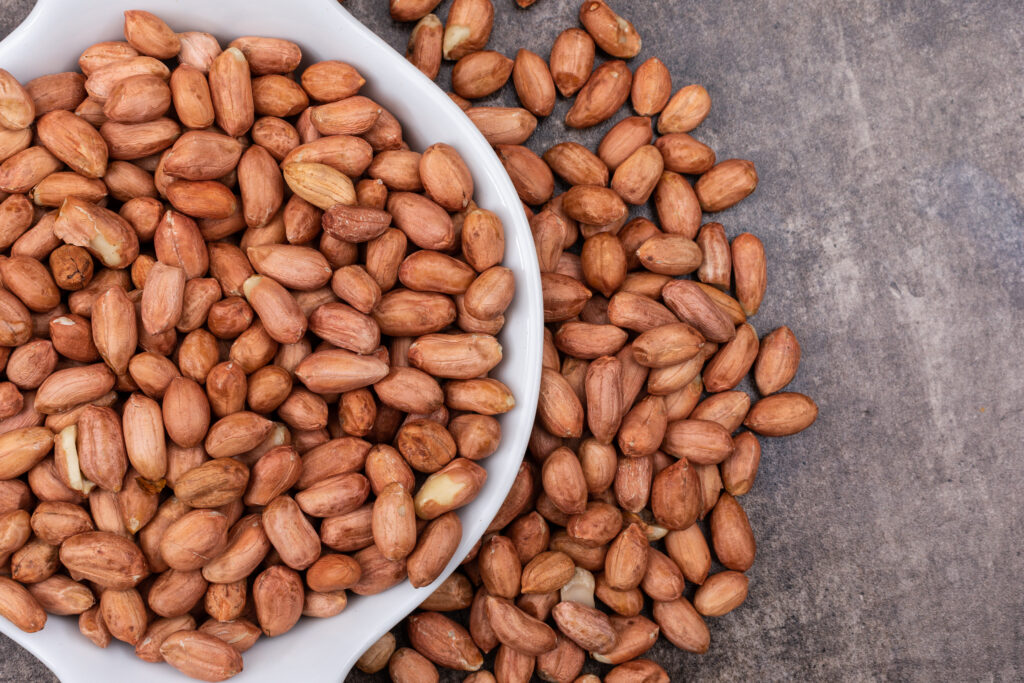
- Gut Health:
Dietary fiber, which is necessary for a healthy digestive tract, can be found in peanuts. Constipation is avoided, regular bowel movements are encouraged, and the growth of good gut bacteria is supported by fiber. There is a connection between a healthy gut flora and better immune response, as well as a lower chance of digestive problems.
- Versatile Culinary Ingredients:
In addition to being nutrient-dense, peanuts are quite adaptable in the kitchen. These legumes can be used to enhance the flavor and nutritional value of a variety of foods, from peanut butter to savory peanut sauces. Add peanuts to salads, puree them into smoothies, or just eat them as a simple snack—there are countless ways to use them in cooking.

Types of Peanut
- Runner Peanuts (Arachis hypogaea): This variety is well-known for its consistent size and shape and is widely grown in the US. Its high oil content makes it a popular choice for making peanut butter.
- Virginia Peanuts:Virginia peanuts, which are bigger than runner peanuts, are sometimes roasted in their shells or used in high-end treats. In the United States, they are mostly grown in the Southeast.
- Valencia Peanuts:These peanuts are frequently used to manufacture boiled peanuts since each shell has three or more kernels. In the American South, they are well-liked.
- Spanish Peanuts: Spanish peanuts are smaller and have a reddish-brown skin. They are frequently used to make chocolates and snacks. When compared to other kinds, they contain more oil.
- Tennessee Red Valencia Peanuts: These peanuts are a smaller species with a sweet flavor that are frequently roasted or boiled.
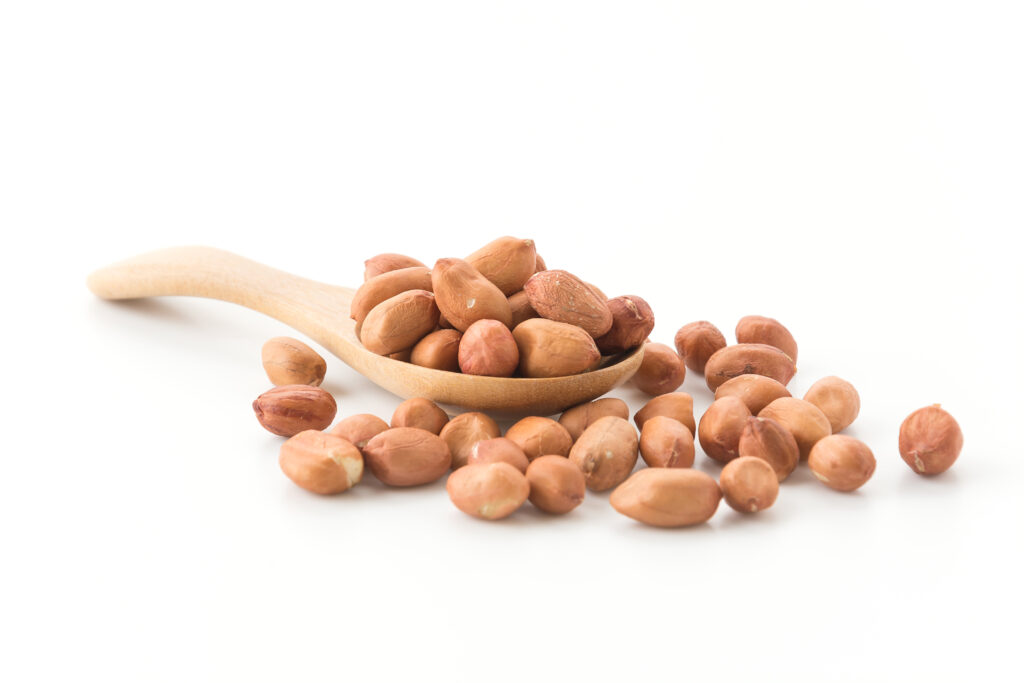
Conclusion:
The humble peanut has emerged as a nutritional powerhouse, providing a plethora of health advantages that go well beyond simple nibbling. Peanuts are a flexible and affordable supplement to a balanced diet, benefiting everything from bone strength to brain function to heart health. So the next time you grab a handful of peanuts, enjoy the nutty goodness that enhances your general health in addition to their delightful flavor. Accept the nutty miracle that is the peanut and allow it to take center stage in your quest for a happier, healthier life.

